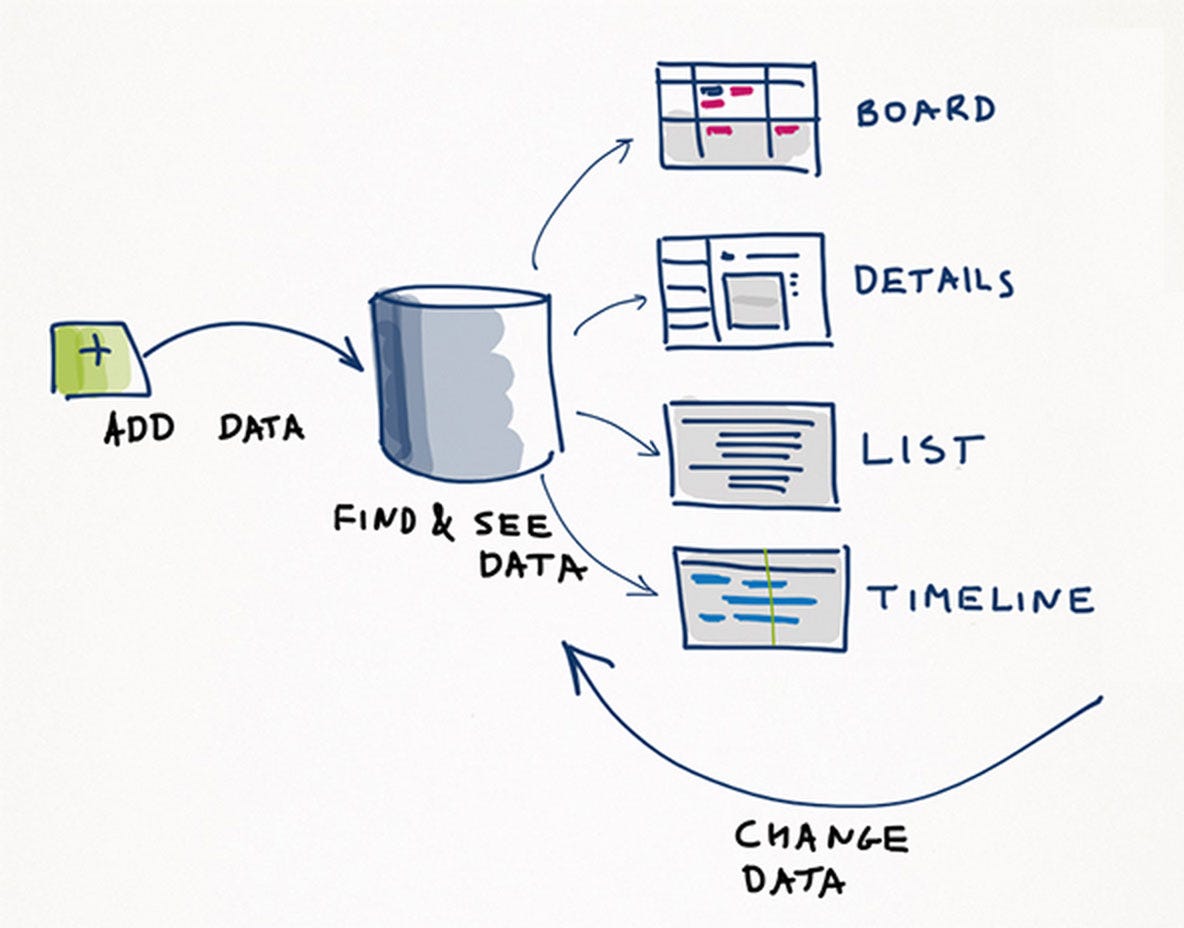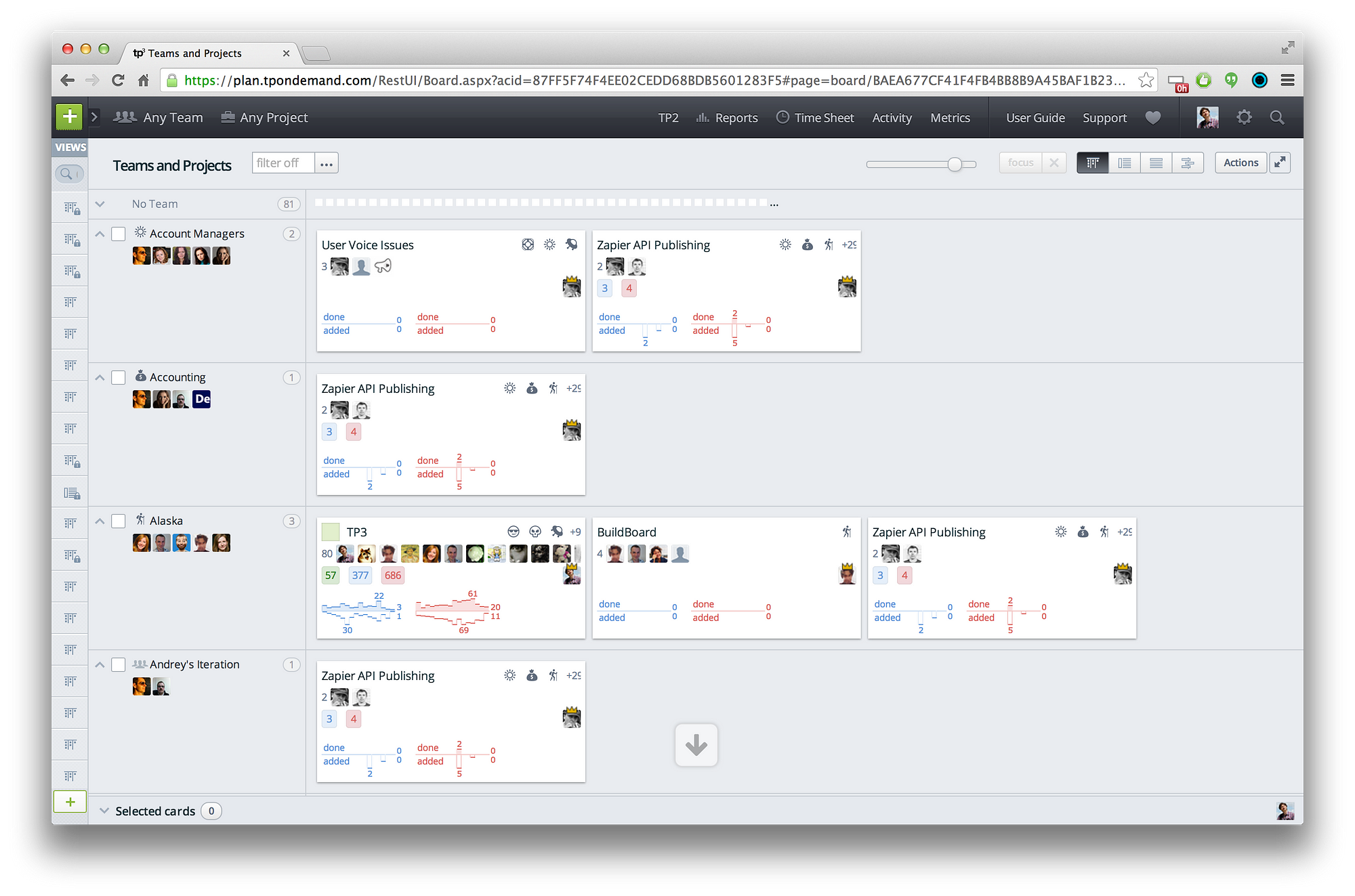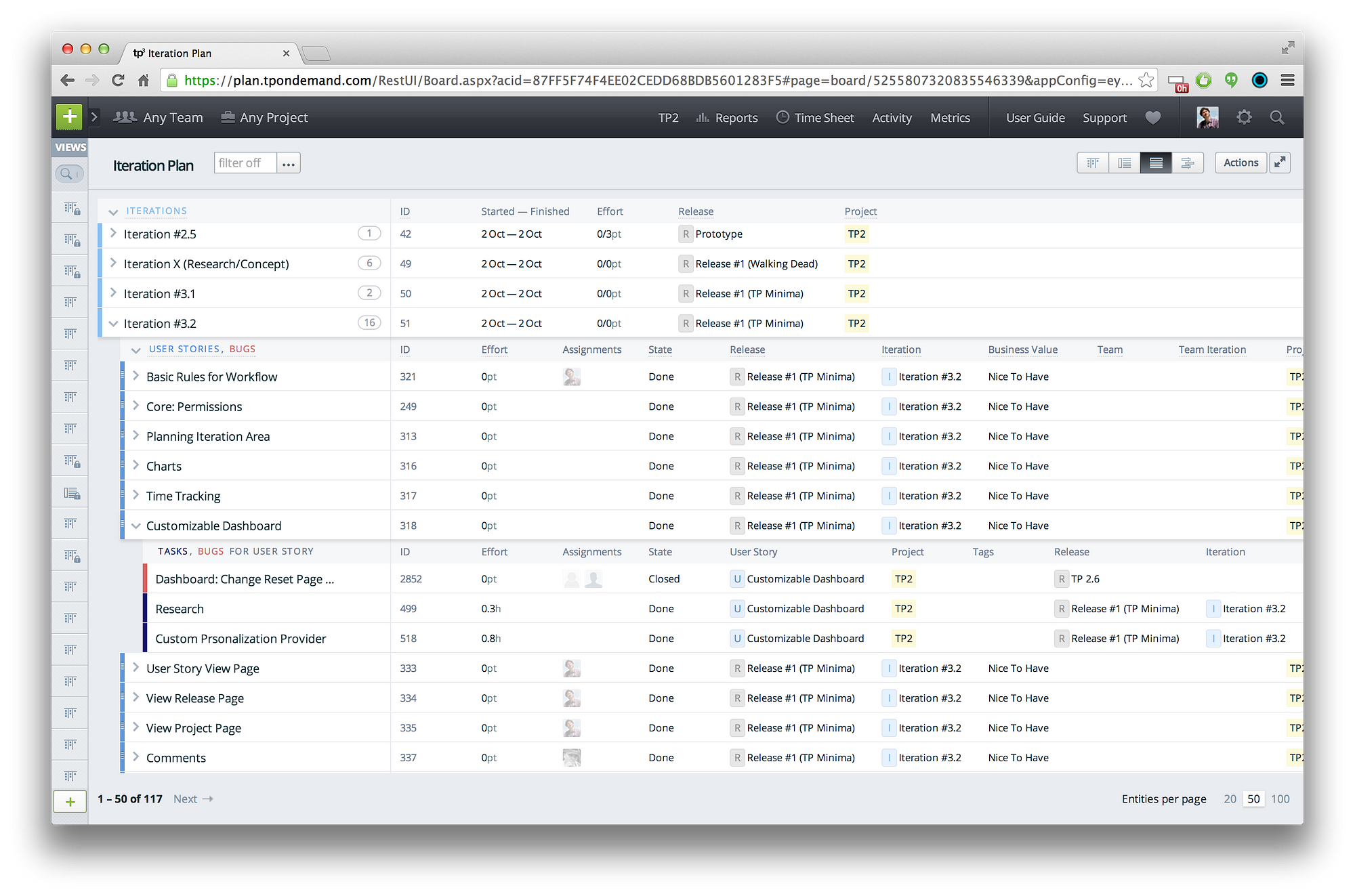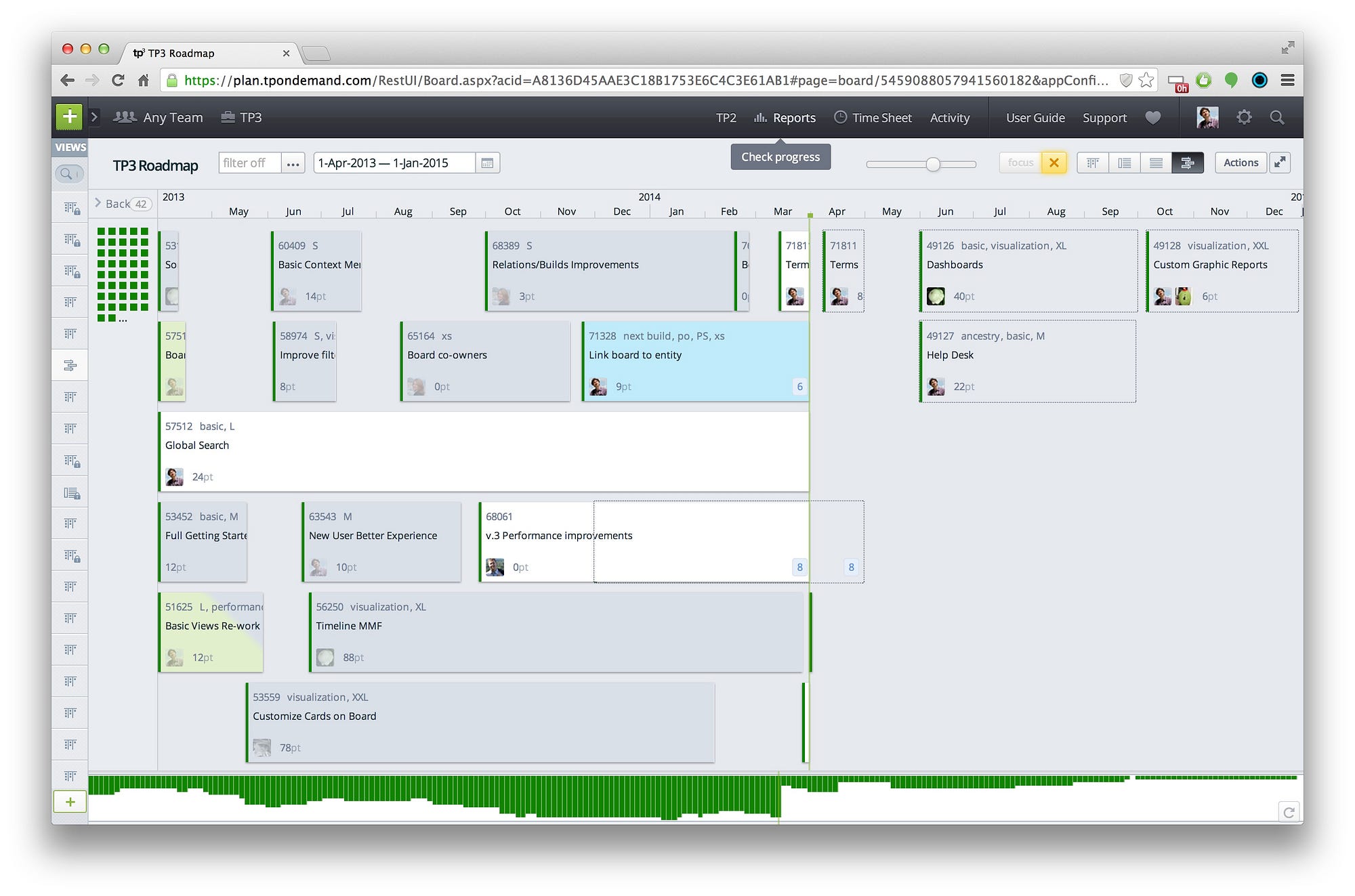Visual Management Software
Existing project management tools have several serious flaws. They hide data inside and give the perception that you are in control. You are not. You don’t see the important things and have to dig through endless lists and reports in order to squeeze out the information you need. When you finally find something, it is not easy to change data you need. You have to navigate away, and visit several screens to achieve what you need. What a pain.
The real problem is that all existing project management tools are bad at information visualization.
Information Visualization
Many think that information visualization consists of fancy infographics, dashboards, and reports. That is far from true. There are many definitions, but I like this one:
Information visualization utilizes computer graphics and interaction to assist humans in solving problems. [Purchase et al., 2008, p. 58]
In a nutshell, you should be able to extract the data you want, present it any way you want, and manipulate it right away any way you want.
Problem #1. Find
It is quite easy to add data into software: projects, tasks, people, plans. It is not as easy to get this data back. Quite often you have limited filtering options and can’t narrow down lists, for example, of user stories in order to see just user stories you want. So you have to dig through the list, change pages to find a single story, do something with it, and repeat.
What if you can extract anything without limitations? Zoom and focus on things? Find exactly what you need?
Problem #2. See
Even if you can extract something, you can’t always see information in a way you want. Most tools rely on lists heavily and provide little options to see things better. Lists, some predefined boards, some predefined reports — that is all.
What if you can switch between different representations in a single click? What if you can see information in a one dimensional list, a two dimensional board, or a timeline with a single click?
Problem #3. Change
Even if some tools do provide visualizations, they are static. You can see a report, but can’t do anything with the data. You can see a timeline, but rarely can change it right away.
What if you could see something important and change data right there?
If you take any project management tool, you’ll see that it doesn’t follow information visualization principles. Everything is fragmented. Lists are here, boards are there, timelines are rare and often are not interactive. There are many limitations with finding exact data you need. There are even more limitations with changing data.
Targetprocess 3 was built to solve these problems in the roots in project management domain.
Targetprocess 3
Targetprocess 3 is a tool that has information visualization principles in its core. It removes many of the limitations that other tools have and gives you the freedom to handle data the way you want.

Solution #1. Find
In Targetprocess 3 you can find anything using powerful filters. There is almost zero limitations and you can create very clever filters. When you have no limitations, you can extract exactly what you want and narrow down the data to see.
Solution #2. See
In Targetprocess 3 you can select data and quickly switch between various views in a single click: Boards represent two-dimensional views, Lists show hierarchies and Timelines show progress of things.
Boards
You can create any board in a minute: Kanban Board, Task Board, Work by Person, Roadmap and many, many others. The Board UI handles huge data easily via collapsing, focusing and zooming.
Ben Shneiderman stated a Visualization mantra:
Overview first, zoom and filter, then details-on-demand.
Views in Targetprocess take this mantra seriously. You can see the whole picture on board, zoom and filter when you want, and dig into details when you need.
 Projects by Teams board in Targetprocess
Projects by Teams board in Targetprocess
Lists
Sometimes you need to work with hierarchical data. For example, product backlog. Lists in Targetprocess 3 are really good at it. You can use filters and flexible settings to see exactly what you need on all levels, update anything in a snap.
 Hierarchical backlog view
Hierarchical backlog view
Timelines
Most tools can’t give you a sense of Time. Any data in Targetprocess can be seen on a Timeline. Progress tracking on all levels is a breeze. You can track releases and iterations, see people’s workload, spot long tasks and delays, discover unexpected patterns in your development flow. Moreover, you can create projects portfolios, product roadmaps, plan releases and iterations. Visually.
 Features Roadmap
Features Roadmap
Solution #3. Change
When you see something, you often want to change that. Targetprocess 3 helps you add entities quickly, select any entities you want and manipulate them via batch drag and drop. Lists provide beautiful experience in adding and editing data. Timelines enable visual manipulations to create roadmaps, plan releases and iterations.
In fact, Targetprocess 3 is a domain-specific visualization software. It focuses on project management domain and provides not static reports, but interactive visualizations. And that makes a big difference. Now information is at your fingertips and you can really find it, see it and change it on the spot.